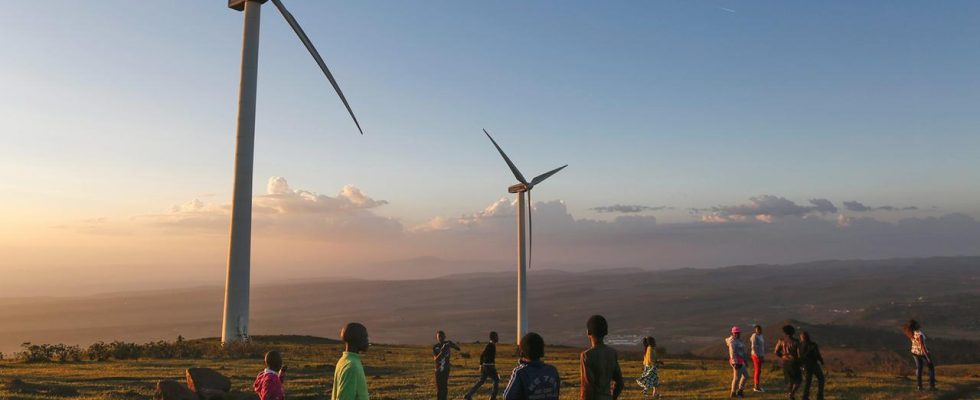The first African climate summit begins today in Kenya’s capital, Nairobi. The country itself wants to lead the way when it comes to climate protection. But the energy transition in Kenya is not yet running smoothly.
The airport in Nairobi is in darkness. Baggage belts stand still. Security systems fail. The only light comes from mobile phones, which wandering passengers use as flashlights.
A few days before the start of the climate summit, Kenya’s capital, like other regions in the country, experienced a total power failure for hours. The government-owned energy company blames problems in a wind farm that caused the grid to collapse. But the operators deny the allegations.
The Kenyans almost don’t care about the reasons. You’re just tired of the constant failures. “I’m a businessman and I depend on electricity,” says Shadrack Odukenya, who runs a small shop in Nairobi. “I have a refrigerator and goods in it.” And the young mother Mariana Muthini says: “It’s just crazy. The government should take care of it, but it’s sweeping everything under the carpet.”
Praise for Kenya’s pioneering role
Kenya’s President William Ruto, who has been in office for about a year, presents himself as a pioneer when it comes to the expansion of renewable energies. In fact, the East African country already generates a large part of its electricity from wind power, solar energy and, above all, geothermal energy.
Chancellor Olaf Scholz also praised this when he was a guest in Kenya at the beginning of May. “The fact that more than 90 percent of Kenya’s electricity is already being produced from renewable energy sources and that 100 percent is to be achieved by 2030 is impressive. And also a reason why Kenya has such great appeal in Africa and beyond.”
“Nairobi Declaration” aim of the conference
In this pioneering role, Kenya seems ideal as the organizer of the first African climate summit. Heads of state from Africa and several thousand delegates are expected. The goal is a “Nairobi Declaration” in preparation for the big UN climate conference at the end of the year.
Kenya’s President underlines how important the continent is on the way to becoming more climate-friendly. “Africa has the largest reserves for developing green energy,” says Ruto. “In addition, 40 to 45 percent of the minerals that are important for the green transition are stored here. At the African climate summit, we want to discuss how we want to move forward as a continent.”
indemnities for climate damage
Another topic will certainly be how the industrialized countries can be persuaded to keep their commitments for payments to poorer countries. Africa should be compensated for the fact that the consequences of climate change with droughts and floods are felt here more than anywhere else, even though the continent has so far caused just four percent of global greenhouse gas emissions.
Money from an equalization fund could be used, for example, not only to expand renewable energies but also to make them usable for everyone, says Kenyan energy and legal expert Tedd Moya. “Kenya is on the right track, but still has big problems,” says Moya. “It is one thing to advance the energy supply in the country. But it has to be another thing to reliably supply electricity to the citizens.”
Especially if Kenya is actually serious about green energy. Because up to now, the diesel generators in many places have still started up during the constant power cuts. And they are anything but emission-free.

